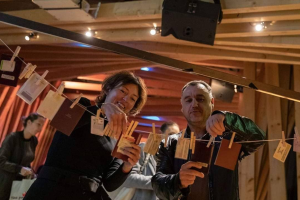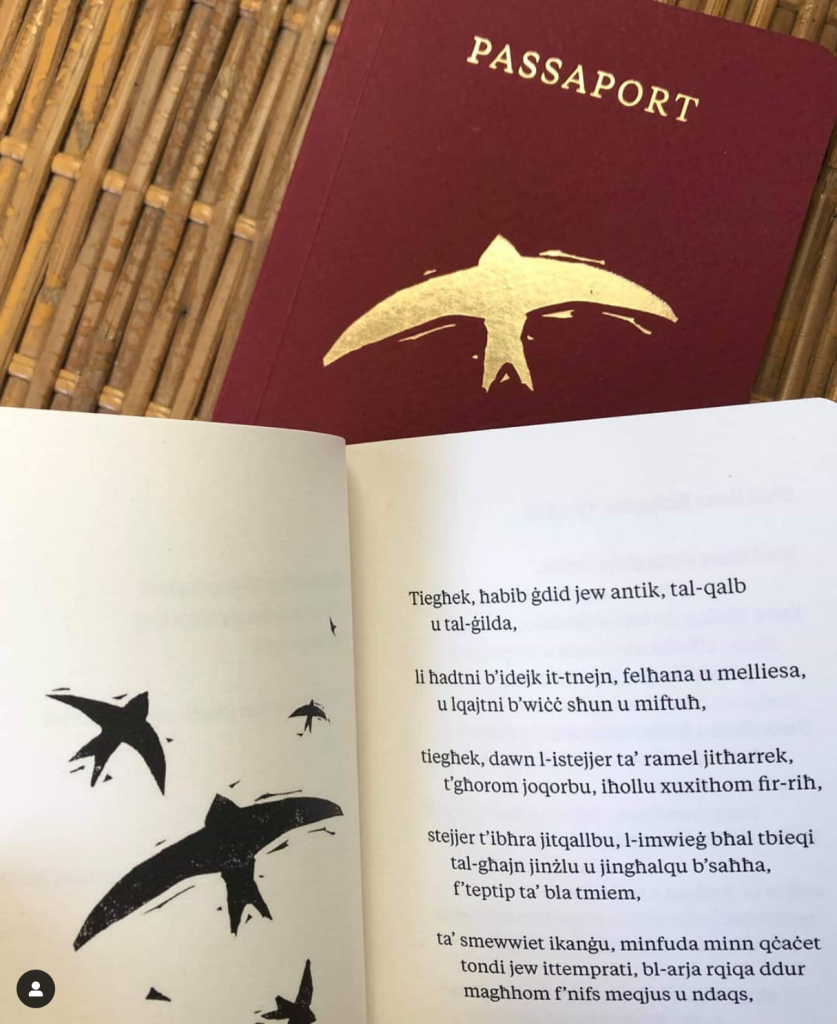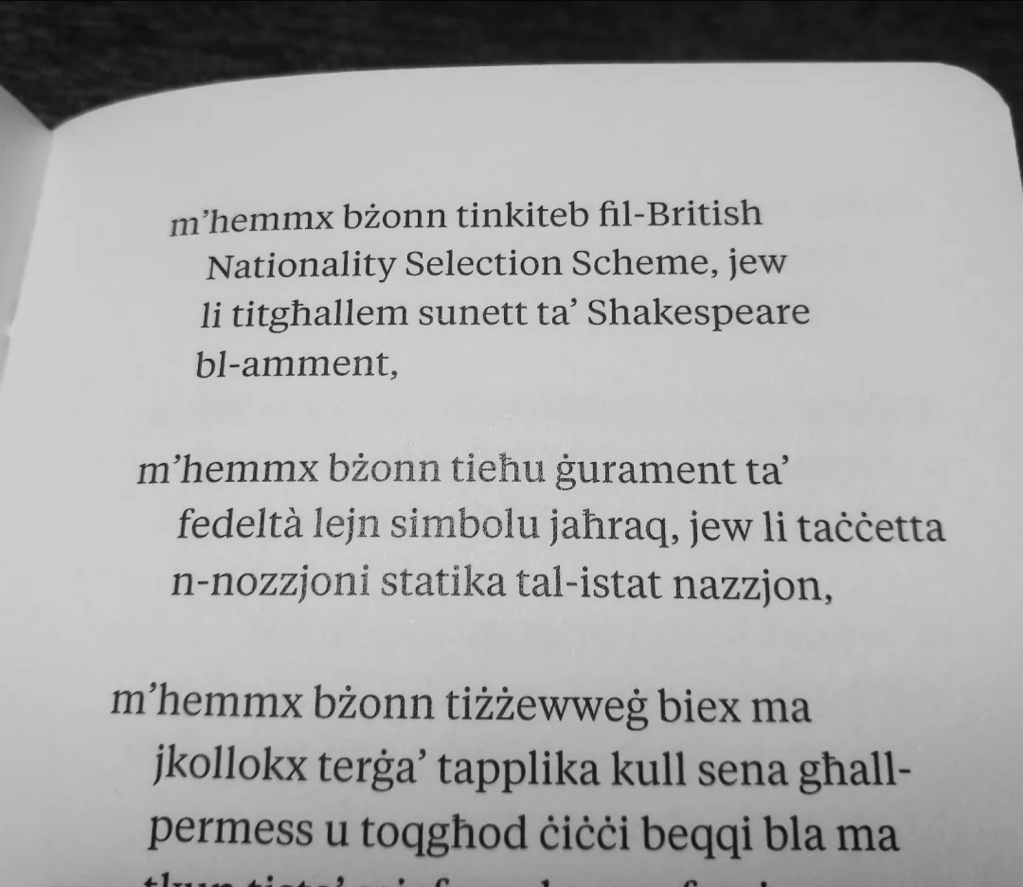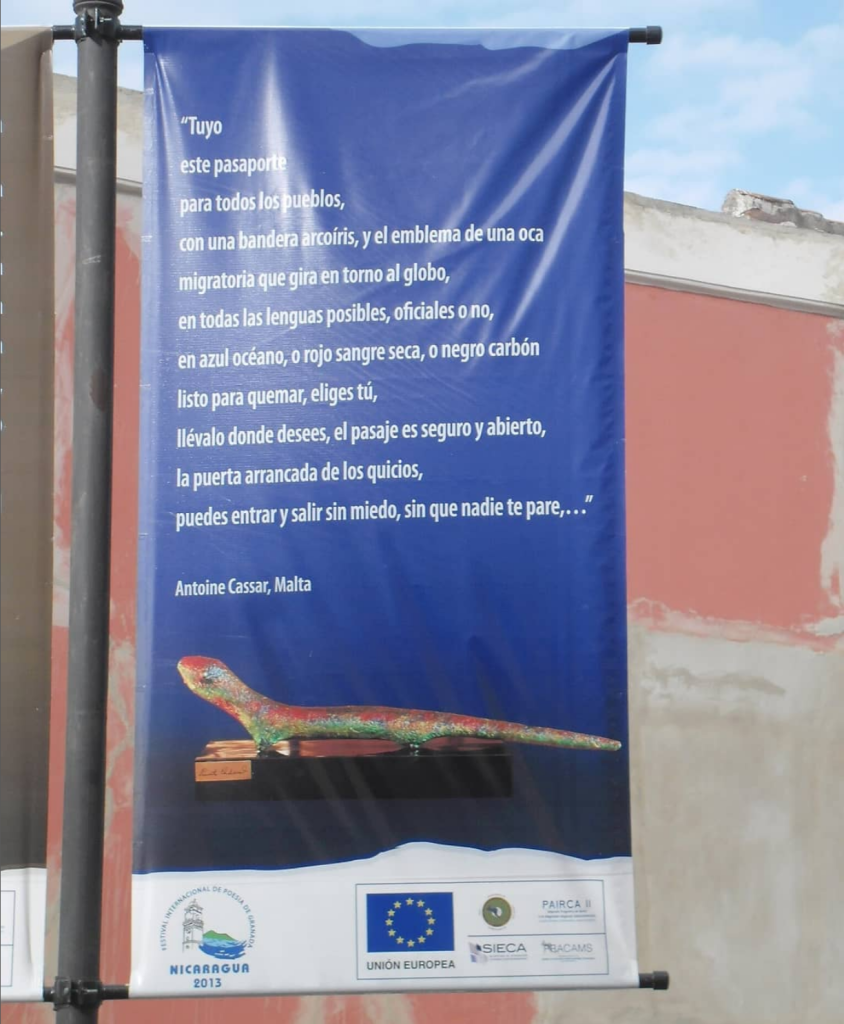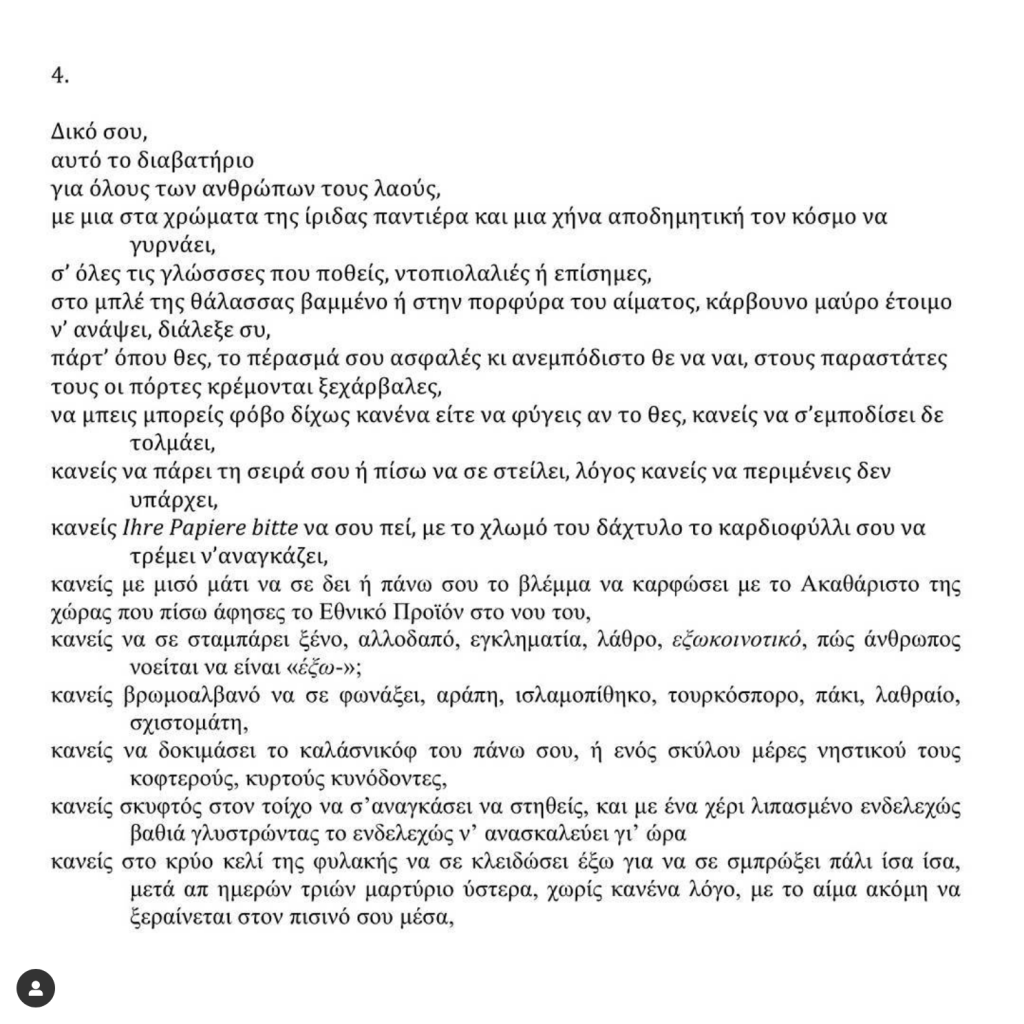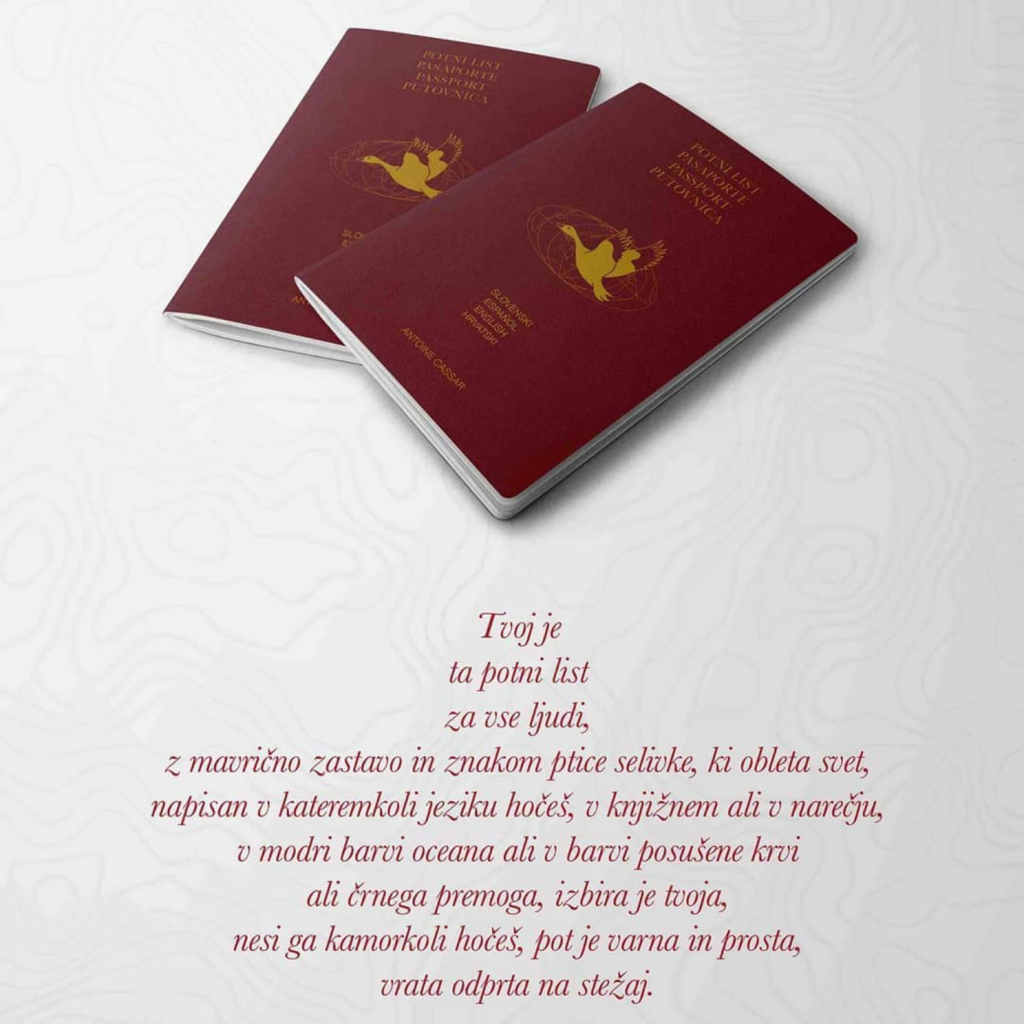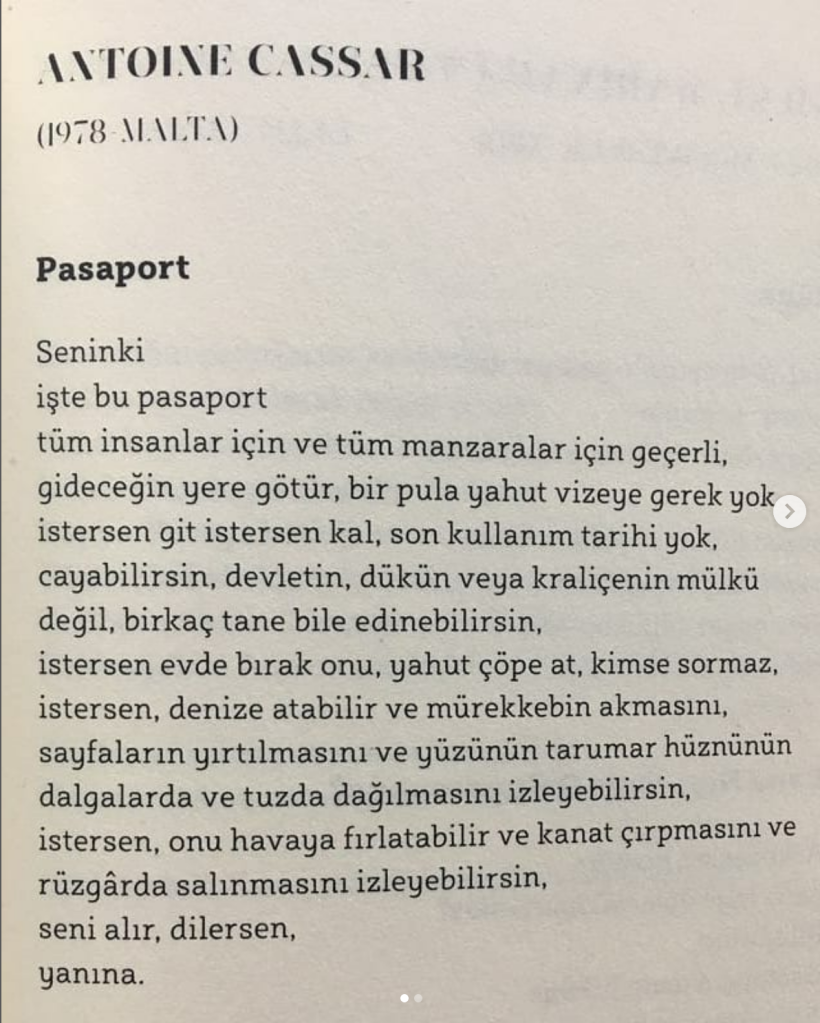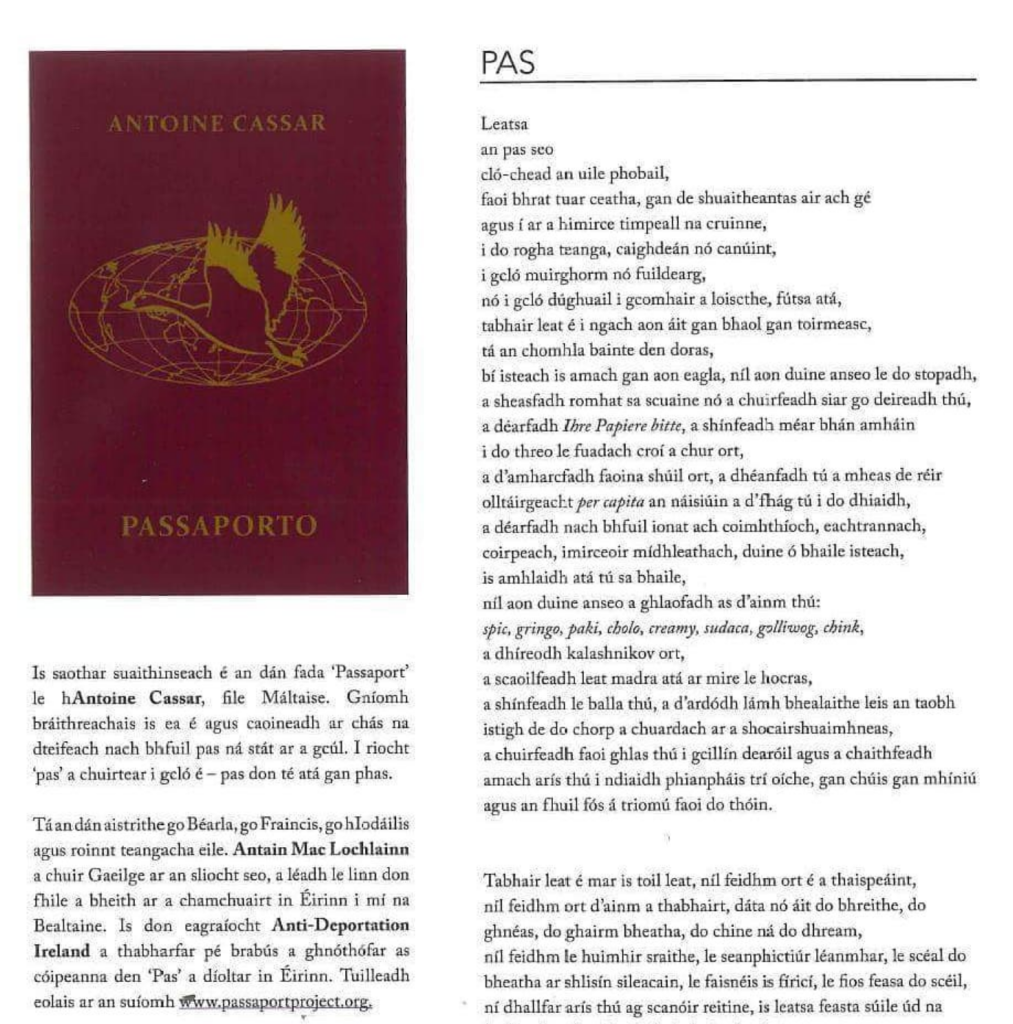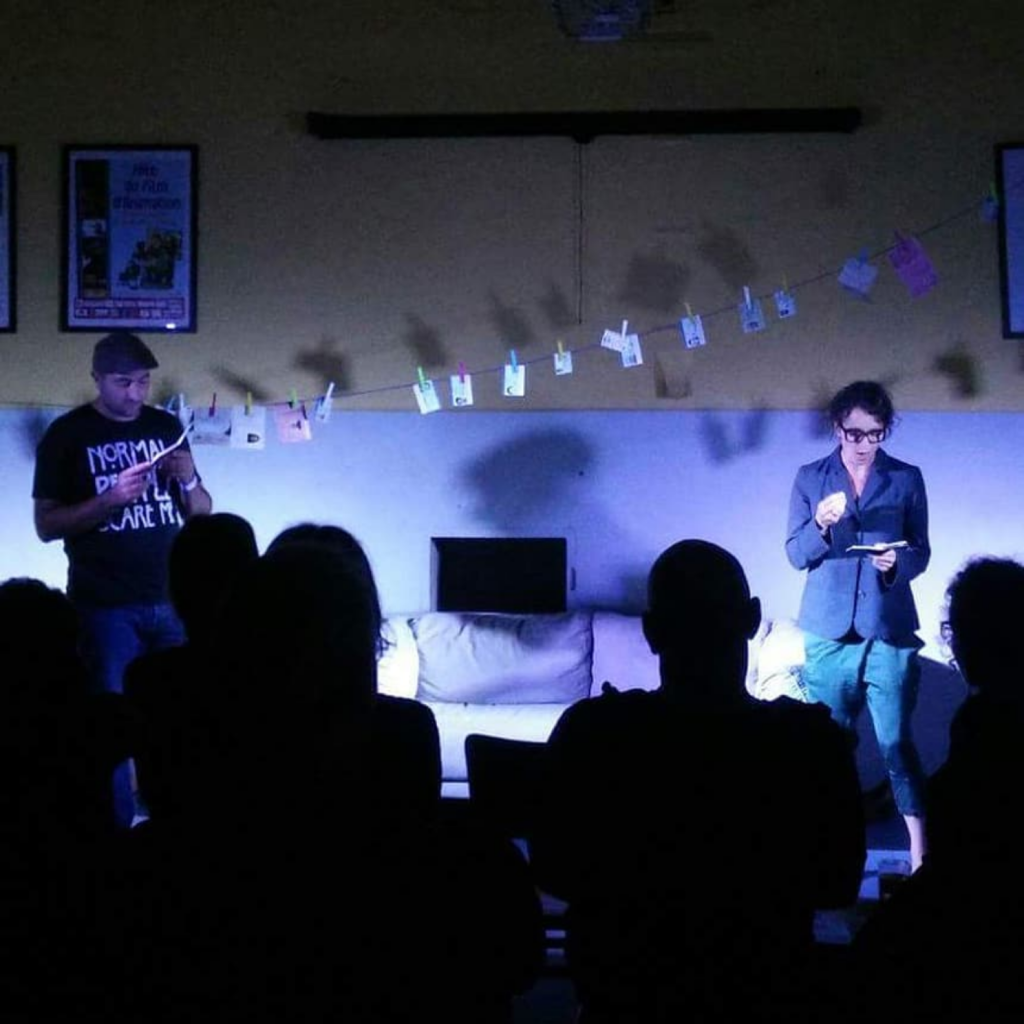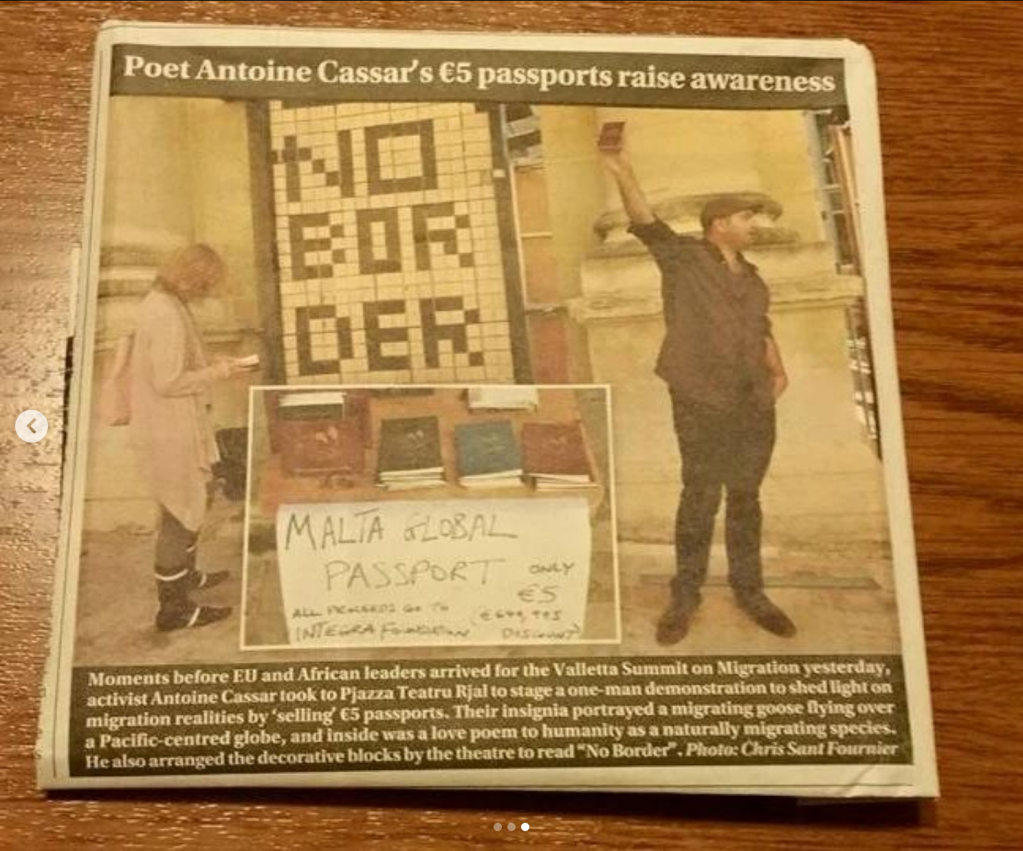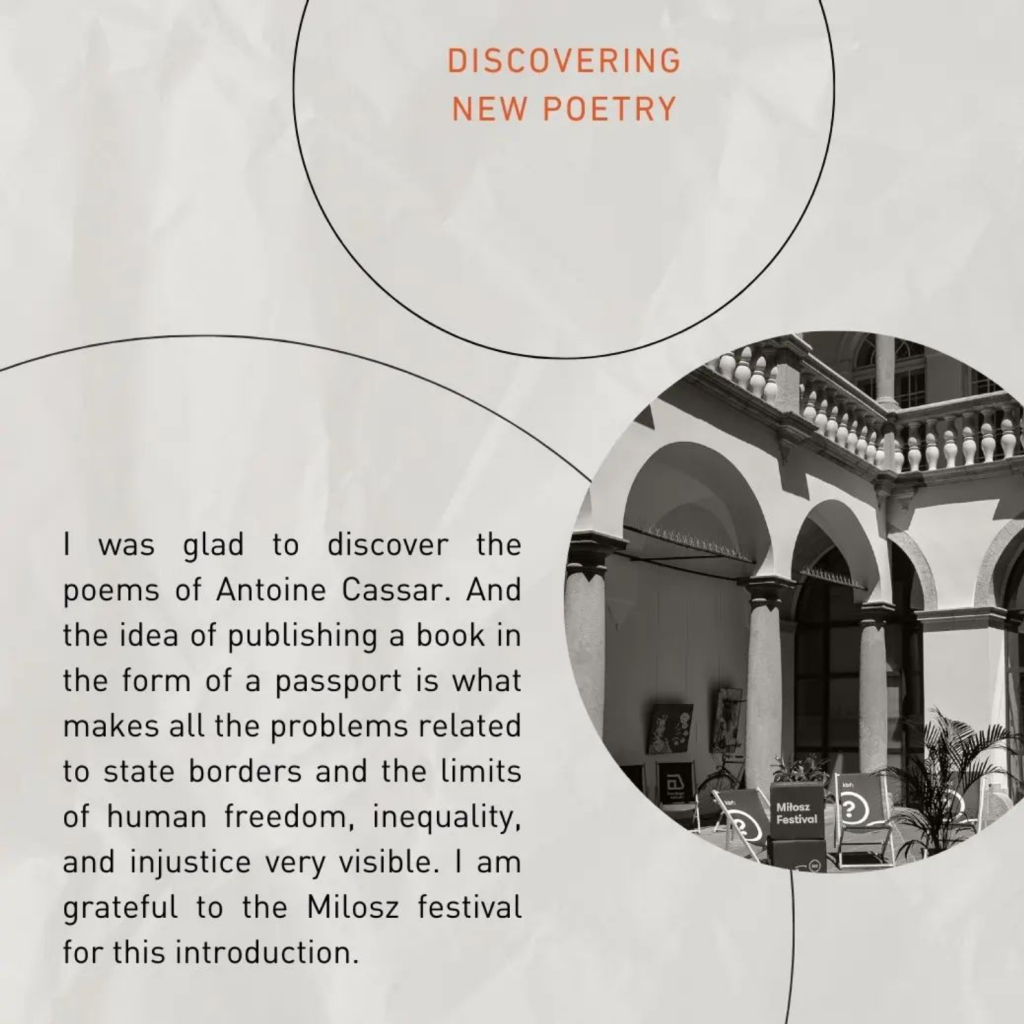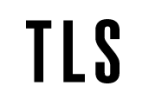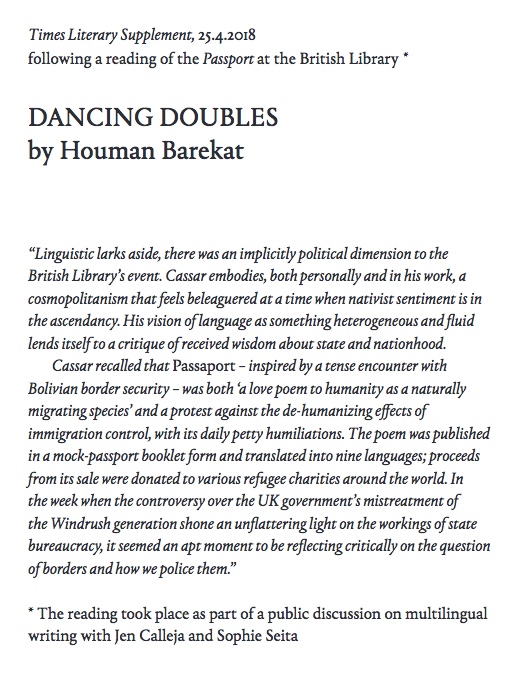Valid for all peoples, all landscapes, all places of birth. Your worth is not proportional to your nation’s GDP. Entry free of duty, no need for a stamp or visa, the doors are unscrewed from the jambs.
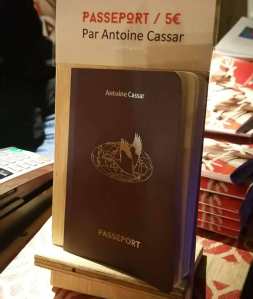
Have you ever had trouble crossing an international border? Made to wait too long, or refused entry? Felt judged, profiled, vetted for no reason at the airport? Questioned aggressively by overzealous customs officials? Humiliated by the state-sponsored gun-toting guardians of the frontier?
Passport is a protest poem denouncing an inventory of border absurdities and atrocities, nested inside a love poem to humanity as a naturally migrating species.
Printed in the form of an anti-passport, the booklet has been published in over a dozen languages; adapted for the stage by theatre groups in Malta, France, Belgium, Luxembourg and Canada; and set to music in France, Italy and Australia. Proceeds are passed on to grassroots associations that provide direct assistance to refugees in the community.
At many recitals of the Passport, the audience is invited to symbolically renounce their identification documents (and privilege of movement) by pegging them to a washing line on stage — thus we are all equally stateless for the duration of the performance.
3rd edition of the Maltese Passaport, published by Ede Books, 2019
Designed by Marco Scerri, with linocut illustrations by Steven Scicluna
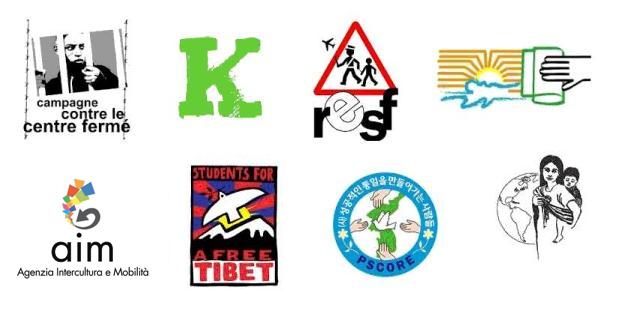
“We met around 4 years ago in Auroville, very briefly. You gave me a passport. I’m still carrying it with me. From Asia to Africa to Europe. Every time I want to travel to meet friends, see my daughters who live in Europe, or simply explore a part of this planet, I have to get visas, financial support letters and bank statements… I wish I could simply show them your passport and they would let me in… I wish I could travel the world without barriers, to be welcomed and loved. Too many questions, too many stamps and documents. It’s humiliating. Your poetry is a refuge for me, facing such folly… I wonder how this species became so stupid… Do sub-atomic particles need passports? Or shrimps ID cards?“
Khaled Mohamed Khaled
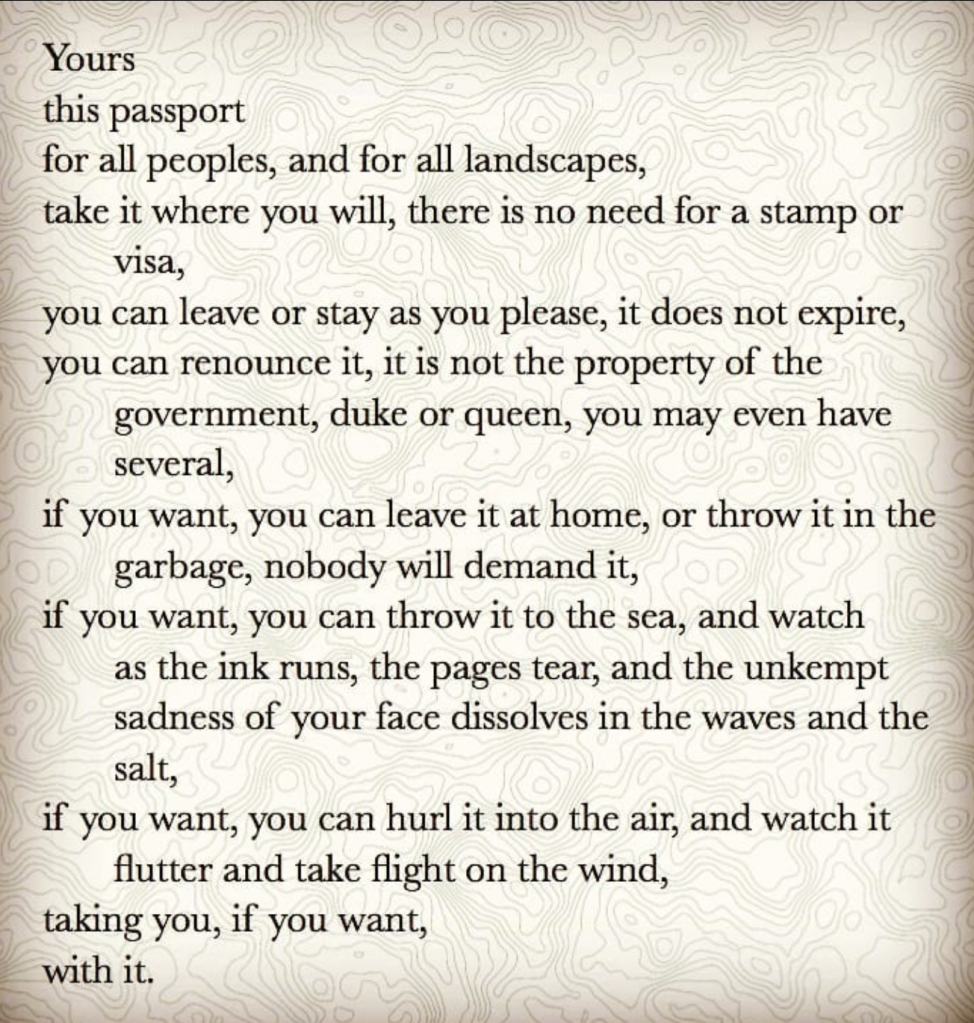
Slide below for excerpts in other languages.
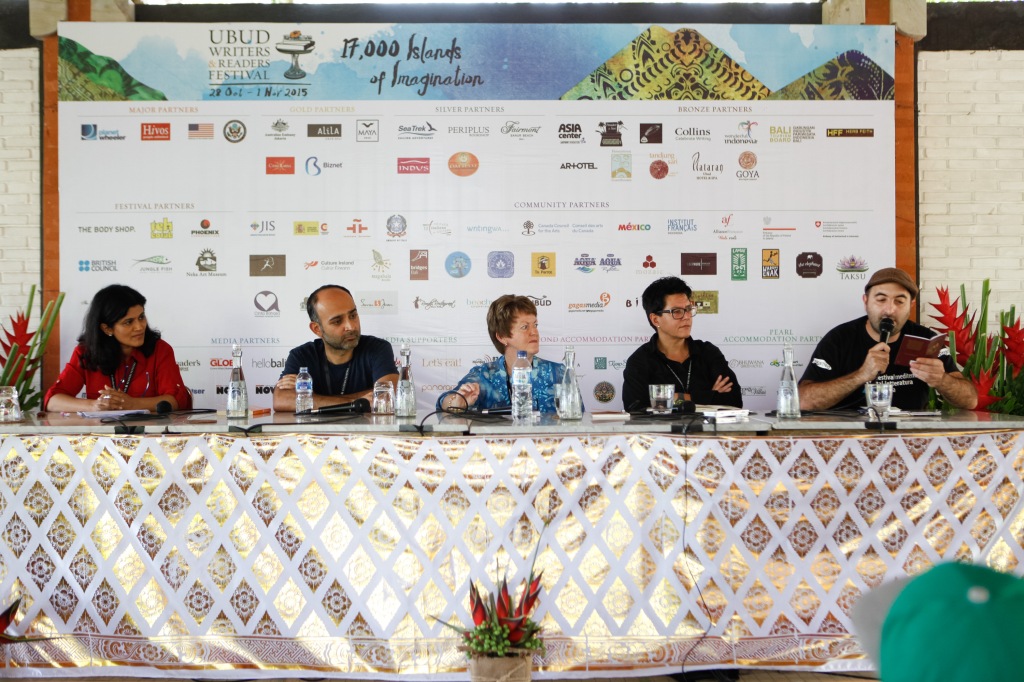
“Passport marks an important intervention in political poetics, a small book that packs a real punch. It is both captivating and liberating — powerful, angry, moving and beautifully crafted — and goes to the heart of injustices that seem to be increasing in the name of security. I love the movement from personal, direct address to the public voice of condemnation and back to the final intimacy of the personal — a trajectory and expansion that effectively captures the global sweep of the subject while keeping the reader hooked.”
Minoli Salgado
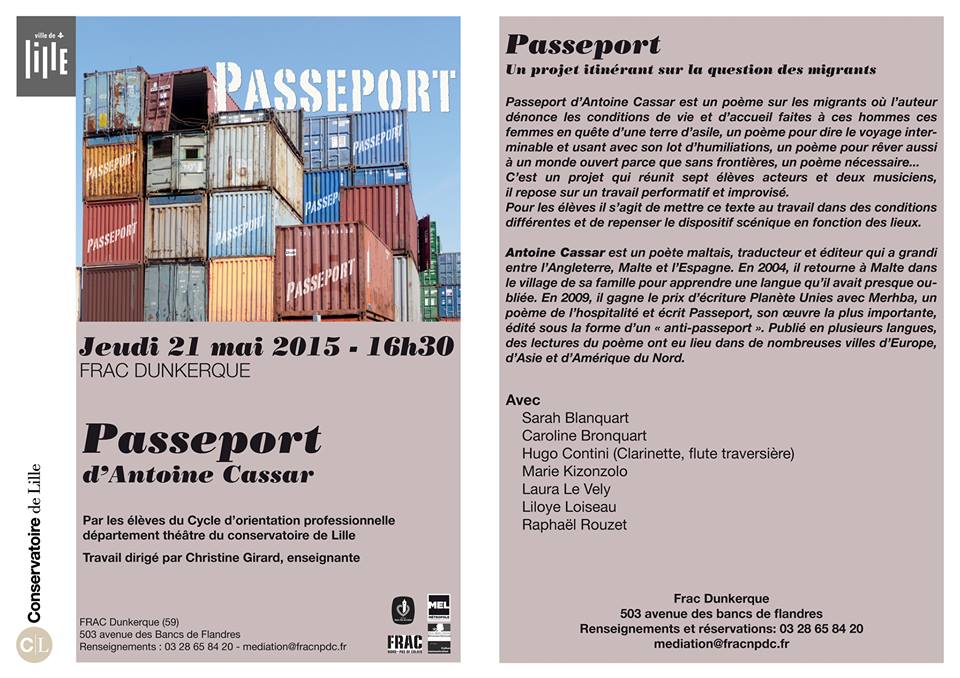
The Passport has been set to music by Italian indie bands ViziDiForma (in their album Bitter) and Et l’Europe Alors (as part of a theatrical-musical performance that toured Italy, France, Slovenia and Croatia). Text co-adapted with Biagio Lieti.
In France, the Passeport (tr. Elizabeth Grech) has been set to electronic music by Compagnie Dautrescordes, and by multilingual choir Céchèki.
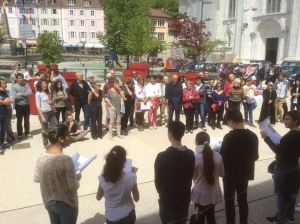
The Passport poem has been used in schools and creative writing workshops in Belgium, Costa Rica, France, Luxembourg, Palestine, Panama and Switzerland, often with children of a migrant background and refugee women.
Among other activities, participants are offered a ‘mini-passport’, with blanks in which to add their favourite words in any language(s), record the racist insults they most despise, and list any absurdities or atrocities they believe should not be necessary in order to cross a border.
For more information, scroll through the Instagram portfolio, or write to antoinecassar at gmail.
